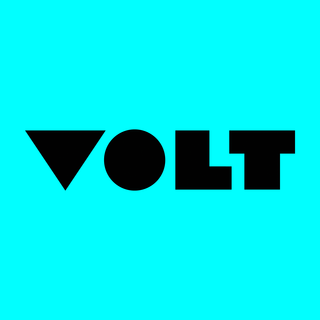| Industry | Banking |
|---|---|
| Founded | July 2018 in Brisbane, Australia |
| Founder | Simon Beitz and Craig Fenwick |
| Headquarters | Brisbane, Queensland , Australia |
| Website | alex |
Alex Bank is an Australian digital bank. [1] [2] It is based in Brisbane, Queensland. [3]
The company was founded in 2018 by Simon Beitz and Craig Fenwick. [4] It was granted a restricted authorised deposit-taking institution licence by the Australian Prudential Regulation Authority in July 2021. [5] In December 2022 the Australian Prudential Regulation Authority announced that it had granted the Bank its full authorised deposit-taking licence. [6]
Alex Bank was established in 2018 by two ex-Suncorp executives, Simon Beitz and Craig Fenwick. [4] [1] At its founding, Beitz was named Chief executive officer [5] and Fenwick Chief financial officer. [1] The bank initially targeted 18-to-30 year-olds in the autumn of 2020, with the idea that they are more comfortable with the idea of a fully-digital bank. [4]
The company launched its banking services late in 2020 after a trial period in 2019. [7] In July 2021, Alex Bank was granted a restricted authorised deposit-taking institution licence by the Australian Prudential Regulation Authority. [5] [3] The licence permitted the company to take deposits of up to $250,000 AUD from public borrowers, [8] but placed limitations on the range of products and services it could offer. [5] Alex Bank was one of only two Australian financial institutions to be granted a restricted authorised deposit-taking institution licence at the time. [8]
The bank had raised approximately $55 million AUD in capital as of September 2021, [3] chiefly from private (mostly Australian) investors. [9]
In December 2022 the Australian Prudential Regulation Authority announced that it had granted Alex Bank its authorised deposit-taking licence. [6]
In July 2023 Alex Bank CEO Simon Beitz stated that long term Alex Bank would find its way onto the Australian Securities Exchange [10]
The bank provides short term personal loans to individual borrowers. [5] [11] The company differentiated itself from other banks by waiving establishment fees, ongoing fees, payout penalties or extra-repayment fees on its loans. [11]
The Australian Prudential Regulation Authority (APRA) is a statutory authority of the Australian Government and the prudential regulator of the Australian financial services industry. APRA was established on 1 July 1998 in response to the recommendations of the Wallis Inquiry. APRA's authority and scope is determined pursuant to the Australian Prudential Regulation Authority Act, 1998 (Cth).

Banking regulation and supervision refers to a form of financial regulation which subjects banks to certain requirements, restrictions and guidelines, enforced by a financial regulatory authority generally referred to as banking supervisor, with semantic variations across jurisdictions. By and large, banking regulation and supervision aims at ensuring that banks are safe and sound and at fostering market transparency between banks and the individuals and corporations with whom they conduct business.
The Australian financial system consists of the arrangements covering the borrowing and lending of funds and the transfer of ownership of financial claims in Australia, comprising:
Banking in Australia is dominated by four major banks: Commonwealth Bank, Westpac, Australia & New Zealand Banking Group and National Australia Bank. There are several smaller banks with a presence throughout the country which includes Bendigo and Adelaide Bank, Suncorp Bank, and a large number of other financial institutions, such as credit unions, building societies and mutual banks, which provide limited banking-type services and are described as authorised deposit-taking institutions (ADIs). Many large foreign banks have a presence, but few have a retail banking presence. The central bank is the Reserve Bank of Australia (RBA). The Australian government’s Financial Claims Scheme guarantees deposits up to $250,000 per account-holder per ADI in the event of the ADI failing.
Financial institutions in Australia are only permitted to accept deposits from the public if they are authorised deposit-taking institutions (ADIs). The ADI’s authority is granted by the Australian Prudential Regulation Authority (APRA) under the Banking Act 1959 (Cth).

Tyro Payments Limited (Tyro) is an Australian financial institution (neobank) specialising in merchant credit, debit and EFTPOS acquiring.

UBank is an Australian direct bank, that operates as a division of National Australia Bank (NAB). It was established in 2008, and provides savings products and home loans online and over the phone.

ME Bank, also known as ME, is an Australian direct bank based in Melbourne. It became a subsidiary of Bank of Queensland in July 2021.
Financial regulation in Australia is extensive and detailed.

Starling Bank is a British bank, occasionally referred to as a digital challenger bank or neobank, providing current and business bank accounts in the United Kingdom. Starling Bank is a licensed and regulated bank, founded by former Allied Irish Banks COO, Anne Boden, in January 2014. Since its founding, it has received over £500M of funding.

ING Bank (Australia) Limited is a direct bank operating in Australia. It is a wholly owned subsidiary of the multinational Dutch bank, ING Group. ING in Australia holds an Australian banking licence as a foreign subsidiary company.
Revolut is a global neobank and financial technology company with headquarters in London, UK that offers banking services for retail customers and businesses. It was founded in 2015 by Nikolay Storonsky and Vlad Yatsenko. It offers products including banking services, currency exchange, debit and credit cards, virtual cards, Apple Pay, interest-bearing "vaults", personal loans and BNPL, stock trading, crypto, commodities, human resources and other services.

Auswide Bank Ltd, formerly known as Wide Bay Australia, was Australia’s 10th bank listed and trading on the Australian Securities Exchange (ASX).
Challenger banks are small, recently created retail banks that compete directly with the longer-established banks in the UK, sometimes by specialising in areas underserved by the "big four" banks. As well as new entrants to the market, some challenger banks were created following divestment from larger banking groups or wind-down of a failed large bank.

Judo Bank is an Australian neobank focused on small and medium-sized enterprise lending but also offers a range of personal term deposit products to consumers.

Volt Bank was an Australian consumer neobank, the first such bank to be issued with a restricted ADI licence by APRA. In June 2022, the bank announced it would permanently close its deposit-taking business and voluntarily return its banking licence, citing funding issues.
Xinja is an Australian fintech company and former bank. Xinja was granted a full banking license by the Australian Prudential Regulation Authority in 2019. Xinja Bank was the second Australian neobank to be made an authorised deposit-taking institution. The company exited banking in December 2020 and returned to business in fintech.
An Electronic Money Institution (EMI) is a financial institution that is authorised to issue electronic money and provide payment services such as domestic and international electronic funds transfers and can provide bank accounts and e-wallets. EMIs are similar to banks except they are not allowed to lend money.